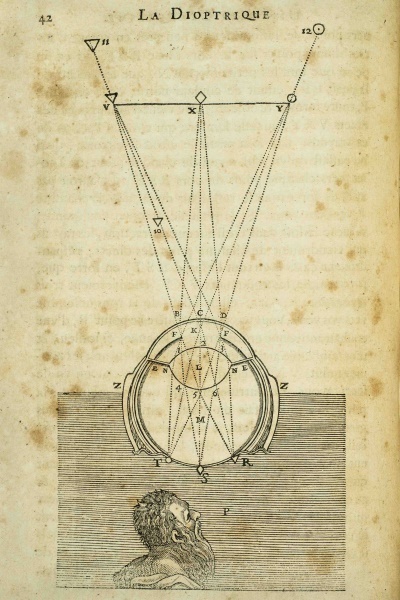Descartes: Discourse on the Method
One of the most fundamental principles of modern philosophical thinking can be traced to Rene Descartes’s famous assertion, “Je pense donc je suis” (“I think; therefore, I am.”), which appears in Part 4 of Discourse on Method. Descartes intended the treatise as a response to prevailing Aristotelian principles of knowledge reliant on the senses. Divided into six sections (dealing with optics, meteorology, and geometry), the work is both philosophical and autobiographical in that Descartes uses his own intellectual development to explain how he arrived at his method. In essence, Descartes “considers false any belief that falls prey to even the slightest doubt,” thus arriving at what he saw as incontrovertible truth. His method of investigation became the basis for the scientific method of inquiry. We are fortunate to be able to view this first edition, published in 1637. That it was printed in Descartes’s native French and not Latin, as was the accepted practice for scientific and philosophic works, suggests Descartes’s attempt to reach beyond a scholastic audience.
—Margaret Strain, PhD, Professor, English
Sources
Descartes, René. Internet Encyclopedia of Philosophy. Web. 10 September 2014.
Marenbon, John. Medieval Philosophy: An Historical and Philosophical Introduction. New York: Routledge, 2007. Print.

